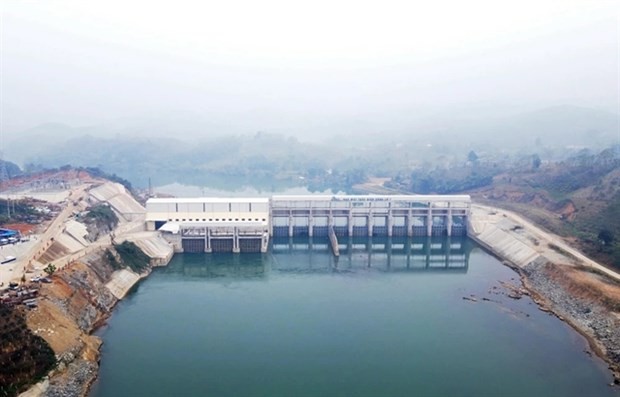
Tuan said electricity production requires natural resources, which are finite and being depleted, including hydropower. Coupled with the financial challenges faced by EVN, minor decreases in fuel prices do not have an effect significant enough to bring electricity prices down.
According to Tuan typically Vietnam's hydropower output accounted for 35% of total output. However, due to droughts in 2023, many hydropower reservoirs were at dead water levels, resulting in hydropower accounting for just 28.4% of total output.
Meanwhile, coal-fired thermal power, which typically accounts for 33.2%, managed to account for 46.2% of total output in 2023. Gas turbine and oil-fired thermal power, normally making up 10.3%, accounted for 9.8%. Imported electricity had a very low share of 1.46%, and renewable energy with an installed capacity of 26.9% only achieved 13% in production.
For now, hydropower remains the most stable output but it can only meet less than a third of the nation's demand for electricity. Renewable energy remains expensive due to earlier incentive policies, which have driven its prices as high as 9.35 US cents per FiT1, higher than EVN's electricity retail prices.
"With our output structure, the cost to produce electricity mainly relies on natural resources. As resources are depleting, the cost will increase. This must be communicated clearly to our customers", Tuan said.
According to EVN, the average total cost of electricity generation, transmission and distribution is VND2,092.78 per kWh, while the selling price is VND1,950 per kWh.
"Of the VND2,092.78 per kWh, the production cost of buying electricity from EVN units and non-EVN enterprises is approximately VND1,620 per kWh, equivalent to 80% of our total operating costs. In other countries, the cost of buying electricity is typically about 50% compared to the selling price, with the remaining 50% allocated to transmission, distribution and operational management. Meanwhile, we only have 20% for these processes, making it very difficult for EVN and its units to balance our books", said Tuan.
EVN's efforts to optimise costs and improve savings in recent years have not produced significant results, at least not enough to address its financial challenges. Therefore, adjustments to retail electricity pricing policies in 2024 are necessary to address EVN's financial difficulties.
Total revenue from electricity sales for the entire group in 2023 is estimated to reach VND497 trillion, a 5.4% increase year-on-year. The total consolidated asset value of EVN as of the end of 2023 is estimated at VND630.53 trillion, 94.7% compared to 2022, with equity capital of VND201.53 trillion, 89.4% compared to 2022.
According to the director-general, Vietnam's total power capacity has reached over 80,000 MW, an increase of nearly 3,000 MW compared to 2022, with renewable energy exceeding 21,000 MW, making the country the top ASEAN renewable producer.
However, due to management issues, there were shortages in the country's northern regions in June last year.
He said the shortages occurred due to various unfavourable factors, including both objective and subjective reasons. These included a low power reserve in the northern region, and the impact of El Nino leading to prolonged drought and reduced water flow to hydropower reservoirs, especially in the northern region. Other causes included high demand for supplementary load, as well as malfunctions in many coal-fired thermal power plants across the system due to the increased water temperature for cooling, extended repair work, and troubleshooting at some non-EVN coal-fired thermal power plants.
























